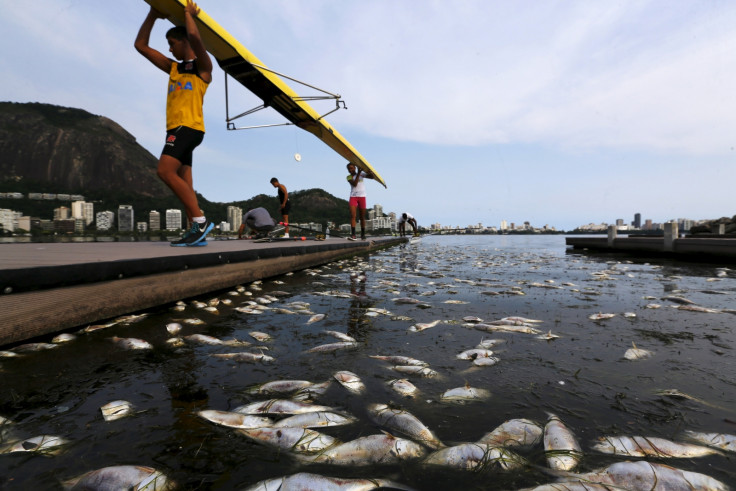Rio Olympics 2016: Athletes face swimming and boating in faeces-ridden water

With the Rio Olympic Games just over a year away, the waters that athletes will be swimming and boating in have been found to be so contaminated with human faeces that they risk becoming violently ill and unable to compete, according to an AP investigation.
Tests conducted on the water found that it contained dangerously high levels of human adenovirus equal to that of raw sewage.
When in the human body, the pathogens multiply in the intestinal and respiratory tracts of humans, and cause respiratory and digestive illnesses, including violent diarrhoea and vomiting, and in some cases bronchitis and pneumonia.
Bacterial tests also found significant levels of faecal coliforms in one of Rio's rivers, which might suggest the presence of cholera, dysentery, hepatitis A and typhoid.
Athletes who ingest just three teaspoons of water have a 99% chance of being infected by a virus, according to a risk assessment conducted for AP by a US expert.
Native Carioca's, however, have immunities to the viruses in the water by the time they reach adolescence, the report said.
The five-month study found that the area where athletes are to enter the water on Copacabana Beach had a minimal reading of over 2 million human adenovirus per litre, which is 2,000 times higher than the levels experts in the US say would be considered "highly alarming if seen on beaches in the US or Europe".
Brazilian officials have insisted that the water will be safe for the Olympic athletes and the medical director of the International Olympic Committee said the clean-up was on track for the start of the games. But neither the government nor the IOC tests for viruses, relying on bacteria testing only.
Despite decades of official promises to clean the water, the stench of raw sewage still greets travellers arriving at Rio's international airport.
Prime beaches are deserted because the surf is thick with putrid sludge, and periodic die-offs leave the Olympic lake, Rodrigo de Freitas, littered with rotting fish.
In May, Brazil's environmental secretary André Correa jumped into Guanabara Bay – which will hold sailing events during the Olympics – on live TV on Globo's Fantástico to prove that the water was safe, according to the Mashable.
"You can swim here just like in Ipanema or Barra," Correa said referring to the two most popular beaches among tourists.
© Copyright IBTimes 2025. All rights reserved.




















